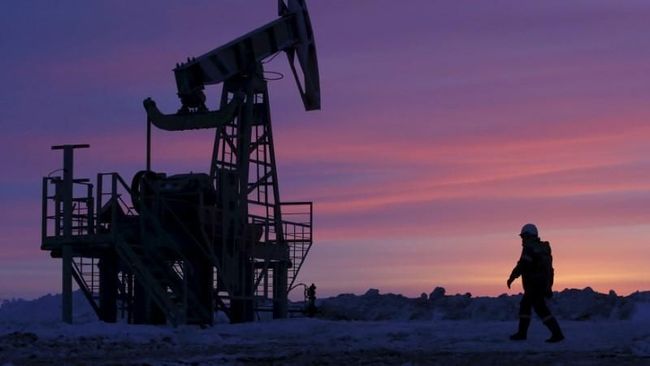Jakarta, CNBC Indonesia – Oil and gas (oil and gas) is one sector that has an important role in state revenues and the Indonesian economy. But unfortunately now the trend of oil and gas production, especially oil, RI continues to decline from year to year. Likewise with efforts to encourage national oil and gas production, a myriad of problems await in front of our eyes.
Deputy Chairperson of Commission VII DPR, Maman Abdurrahman, described a number of challenges faced by the national oil and gas sector. He said that there were at least six challenges faced by the Indonesian upstream oil and gas industry.
The first is the dissolution of the Upstream Oil and Gas Executive Agency (BP Migas) by the Constitutional Court (MK) in 2012 which has now changed to the Special Task Force for Upstream Oil and Gas Business Activities (SKK Migas). Until now, there has been no certainty of laws governing the national upstream oil and gas regulatory institutions.
Therefore, according to him, the certainty of RI’s upstream oil and gas regulatory institutions will be regulated in the Revised Law no. 22 of 2001 concerning Oil and Gas (UU Migas) which is targeted to be completed by the DPR in 2022.
“This oil and gas is still a backbone country income. This oil and gas is backbone income outside the tax sector. If our national production increases, state income will increase, if it decreases, income will also decrease,” he explained in the ‘2nd International Convention Indonesian Upstream Oil and Gas 2021’, Tuesday (11/30/2021).
After BP Migas was disbanded, according to him, the bargaining power of the oil and gas sector became weak. This condition has an impact on decreasing investor interest in entering this industry.
“So after the disbandment of BP Migas, it becomes SKK Migas bargaining position the oil and gas industry is weak,” he said.
Another problem facing this sector is the declining oil and gas production. According to him, optimism is needed in pursuing Indonesia’s oil and gas production target, because if production continues to decline, state revenues will also decline.
“Our income has fallen, compared to state expenditures that have increased from year to year. Our sense of urgency, I invite oil and gas friends, all of you are foreign exchange heroes,” he continued.
In the midst of declining production, on the other hand, no new reserves were discovered. In fact, the national oil and gas industry will also face global challenges, namely the energy transition to carbon neutral or carbon neutral net zero emission by 2060. With this carbon neutral target, it means that by that time, the production and consumption of fossil energy, including oil and gas, will be significantly reduced.
According to him, before Indonesia reaches carbon neutrality in 2060 and fossils are increasingly abandoned, Maman suggested that exploration and exploitation should be intensified.
“So if there are new reserves this year, the next 10-15 years they will only be used. But today there are no (finds),” he said.
Furthermore, another challenge in the oil and gas sector is the large number of large investors leaving Indonesia’s oil and gas projects, for example Shell which plans to leave the Masela Gas project, and Chevron which plans to leave the Indonesia Deep Water Development (IDD) Deep Sea Gas project.
According to Maman, this is a fact that needs to be considered together.
“Investor pull out, Chevron big pull out. I say, not scared,” he said.
Maman further said that other challenges faced were convoluted rules and “tricky“But for him, the rules in the oil and gas sector are more prudent.
“The problem with oil and gas affairs is not only oil and gas, actually, which is related to AMDAL and other permits, this is still complicated,” he concluded.
(wia)
– .


